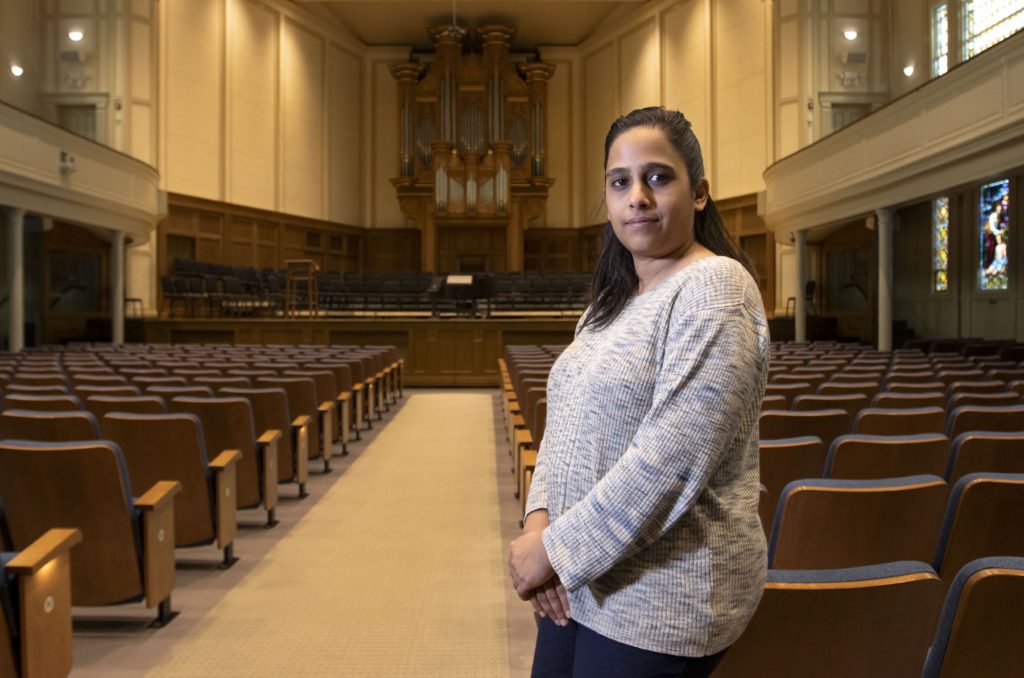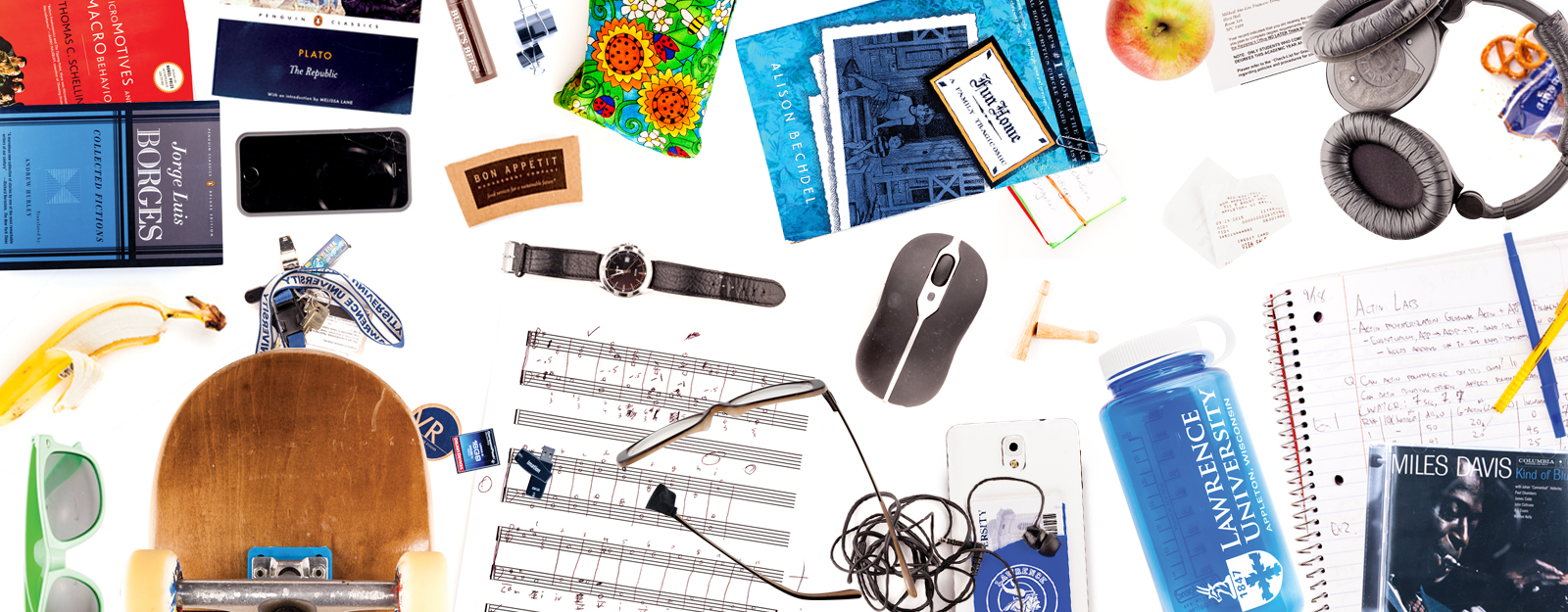
Story by Ed Berthiaume / Communications
Composer Asha Srinivasan has been no stranger to navigating the world of music creation over the past decade.
The associate professor of music at Lawrence University has composed 21 commissioned pieces since arriving at the Lawrence Conservatory of Music in 2008, mostly at the behest of performance groups seeking new chamber music from emerging composers. But the request that came to her a year ago took her by surprise and kicked off a three-year musical relationship with students at a college more than a thousand miles away.
Srinivasan was chosen to write a piece of music commissioned as part of East Carolina University’s NewMusic Initiative. She’s now into the second year of a three-year process that is allowing her to stretch her musical boundaries and to represent Lawrence in new ways. She spent two days in Greenville, North Carolina, during Lawrence’s fall term reading period working with East Carolina composition students, a prelude to the choral music she’ll be writing in the months ahead.
“It’s a prestigious commission because it’s such a selective process,” Srinivasan said.
The ECU initiative works like this: Undergraduate and graduate students in the school’s music program spend the better part of a semester listening to music and surveying the landscape for composers they’d like to work with. Composers need not apply. Any composer from anywhere may be in the mix, unbeknownst to them until someone from the program reaches out.
Once a selection has been made, the school contacts the composer to make an introduction and an offer, to talk about committing to a three-year process and, if interested, to hammer out the details. The first year is about doing that groundwork, making the connection, and giving the composer the opportunity to choose which ECU music group he or she would like to write for. The second year involves interactions between the composer and the students — hence Srinivasan’s recent two-day trip to Greenville — and the start of the writing process. The third year brings the completion of the piece and eventually a premiere performance.
Through it all, the ECU students get an education in the commissioning process. Srinivasan gets a chance to tackle her work in a whole new way. And Lawrence gets an important connection with a new batch of young musicians.
One never knows when those types of connections will circle back, Srinivasan said, noting how she first came to the attention of the ECU students.
“It turns out that one of the cello graduate students had been an undergraduate at Western Illinois University when I was featured there as a guest composer several years ago,” she said. “She had heard a flute and cello piece of mine called Dviraag. She got interested in my music, and so she’s the one who first put in my name.”
For more on the Lawrence Conservatory of Music, see here
Because it’s a three-year process — most of her commissioned work has happened in five- or six-month windows — this project gives Srinivasan new possibilities. Not only did she get to choose the ensemble she’d be writing for, but composer Edward Jacobs, a professor in ECU’s School of Music and the founding director of the NewMusic Initiative, encouraged her to try new things.
“He said, ‘This is a chance for experimentation,’” Srinivasan said. “It’s usually a performance group that commissions me, and it’s usually chamber music, and so the instrumentation is already a given. But in this case, I got to choose the instrumentation. I chose to write for their chamber singers, which is kind of like our concert choir. I haven’t done much work for the choir. That isn’t an opportunity that’s come my way, but it’s also something I’ve stayed away from or veered away from. So, I’m using this as an opportunity to embrace something that would be major growth for me and push myself out of my comfort zone a little bit.”
A new commission is launched in the three-year cycle each year. The process, ECU’s Jacobs said, benefits both the composer and the students, in part because of the collaboration that’s built in.
“The lengthy span of a commission allows a composer to become a part of our community through multiple visits to campus,” he said. “It allows for students and composer to collaborate on sketches during the work’s development, and allows the composer a longer time-span than usual for a commissioned piece to be written.”
Srinivasan said it was on her two-day excursion to the ECU campus that she realized how valuable this sort of thing was for the Conservatory here.
“I listened to their ensemble and talked to their composition students,” she said. “I gave nine private lessons. I met with master’s students. And I came as a representative of Lawrence, of course, so they got to know Lawrence.
“I think it helps give Lawrence more notice. People already know of it. But it helps to have that personal connection. People see my teaching and it represents Lawrence’s commitment to me as a composer and shows that my work as a composer is supported.”
Srinivasan said she’s in the early stages of writing. The composition will be finished in time for its premiere at ECU in the spring of 2021.
Ed Berthiaume is director of public information at Lawrence University. Email: ed.c.berthiaume@lawrence.edu

Recent Comments